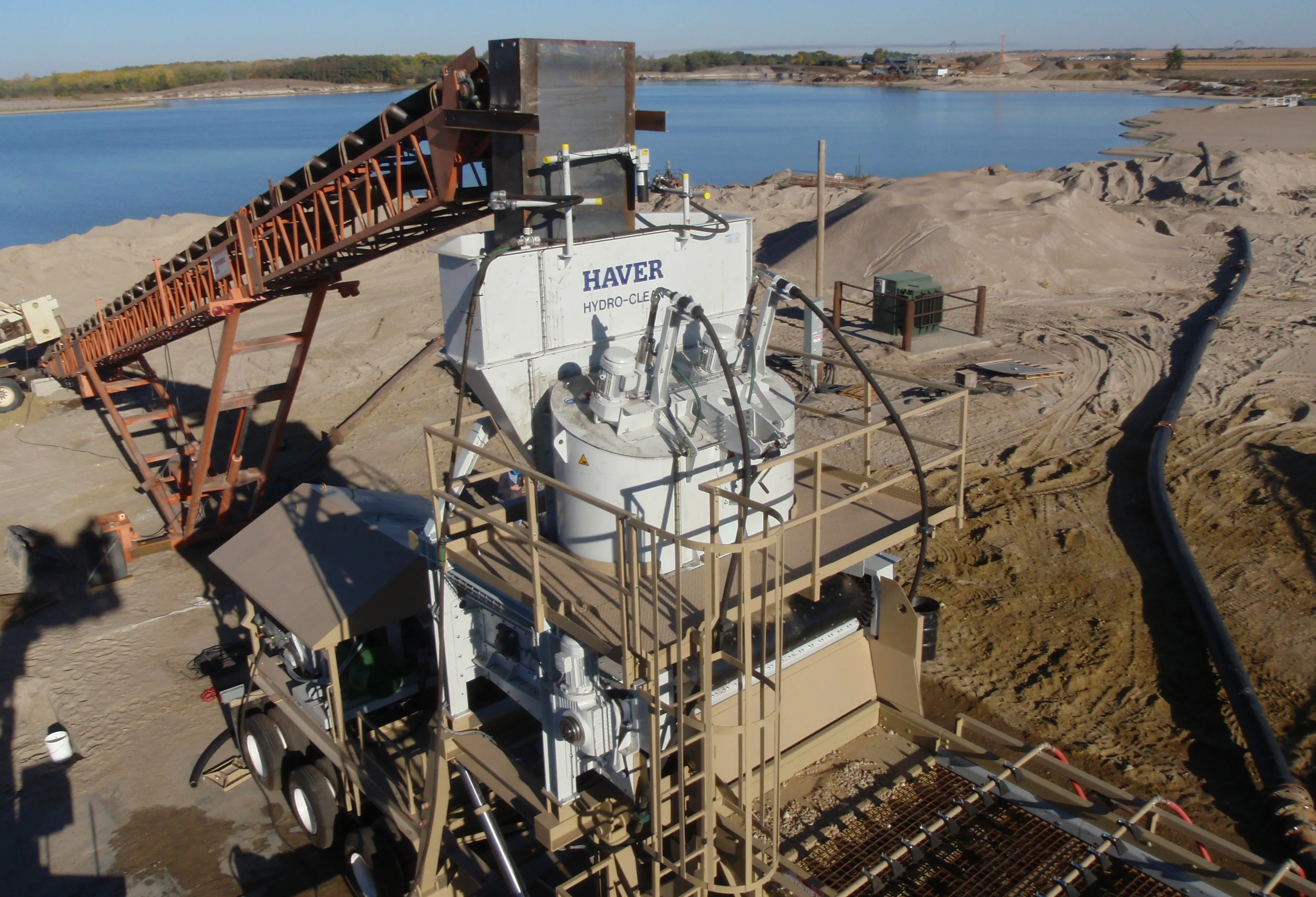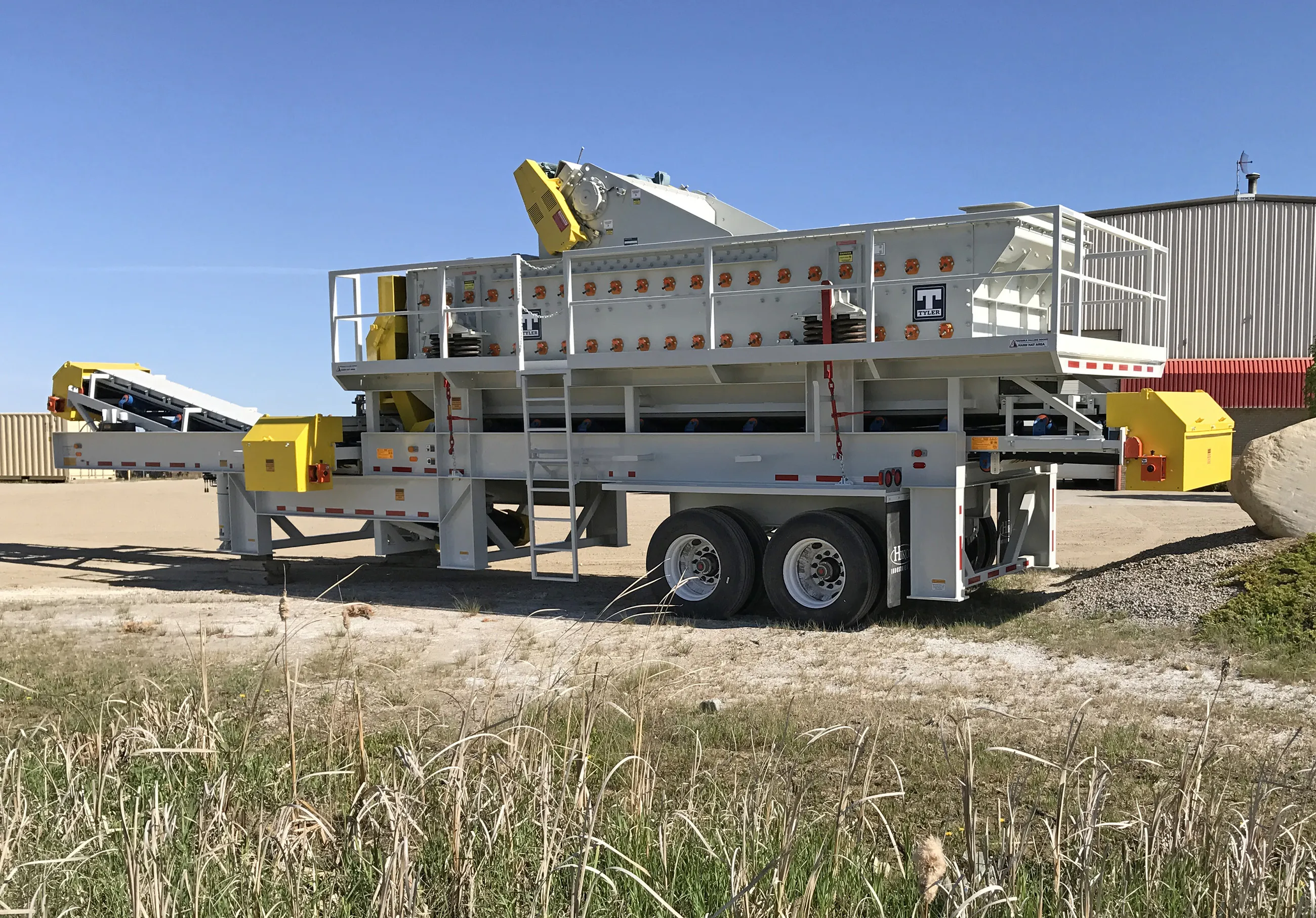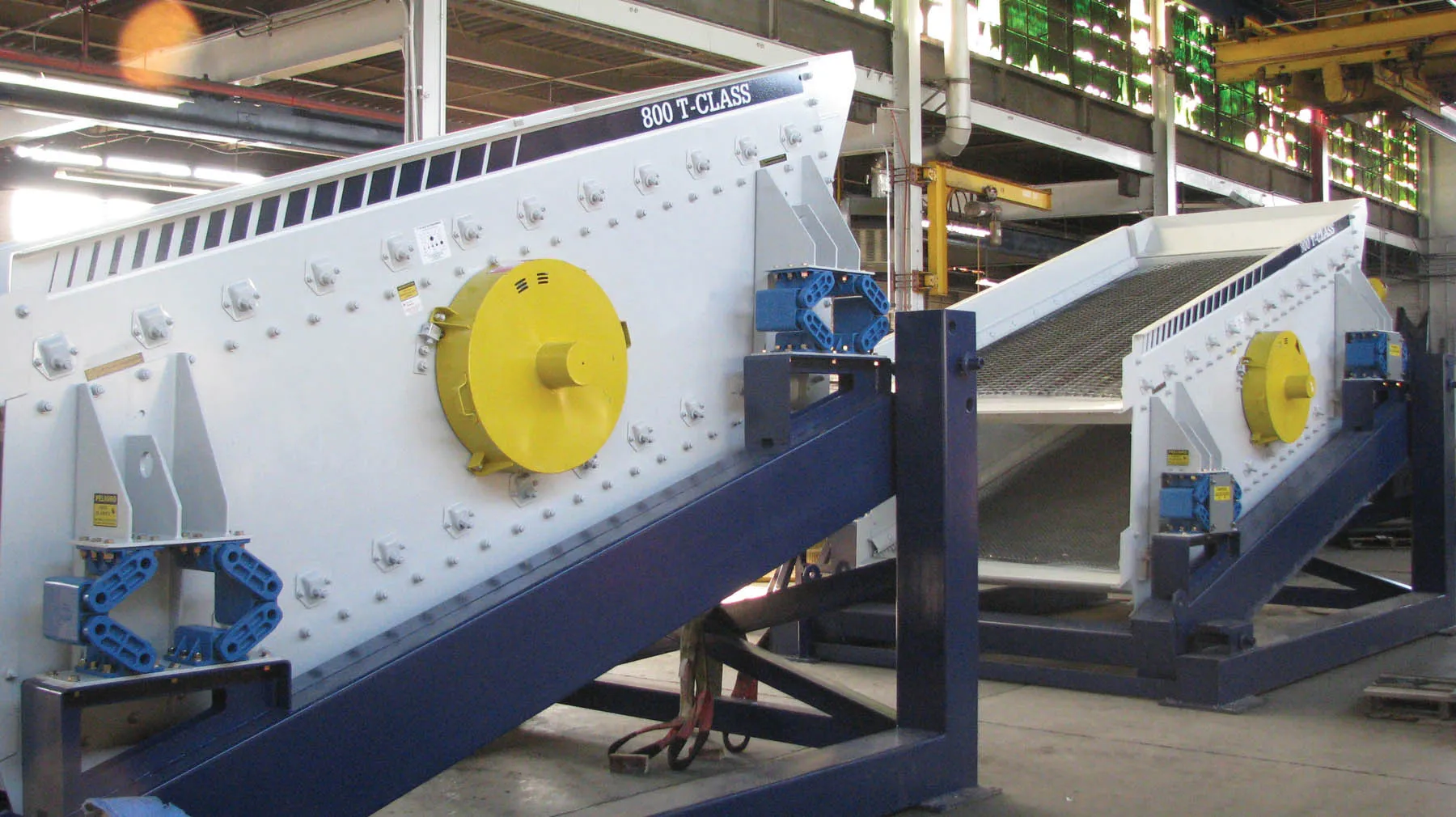WS Tyler says it has added mobility to the list of benefits of its Hydro-Clean washing system.
The company, a member of the wholly-owned German-based Haver & Tyler Processing Technology Alliance, now offers the ability to mount the machine on a chassis for easy movement from place to place within a quarry or even from jobsite to jobsite.
As with the original Hydro-Clean, the portable unit effectively cleans deleterious material from aggregate, recycled and other minerals. The results are cleaner products
January 24, 2014
Read time: 2 mins

The company, a member of the wholly-owned German-based Haver & Tyler Processing Technology Alliance, now offers the ability to mount the machine on a chassis for easy movement from place to place within a quarry or even from jobsite to jobsite.
As with the original Hydro-Clean, the portable unit effectively cleans deleterious material from aggregate, recycled and other minerals. The results are cleaner products with higher selling value and profits from material that was previously considered waste.
“In the process, the Hydro-Clean uses up to 75% less water than traditional washers and 15% less energy,” says the company.
“The Hydro-Clean is unique in the industry,” said Matthias Bremer, innovation engineer at W.S. Tyler.
The Hydro-Clean removes silt and clay particles faster than traditional methods, which require soaking the material for long periods to loosen unwanted debris.
According to the company, water consumption ranges from 27-211 gallons/minute (102-799litres), depending on application and model size, compared to log washers that can require up to 800gallons/minute (3,028litres). Of the Total volume of wastewater, up to 90% can be recycled and reused in the Hydro-Clean, which only requires 10% fresh water to operate effectively. “Hydro-Clean units require less energy, ranging from 34hp (26kW) on the smallest of three models to 300hp (225kW) on the largest. With that, the HC 350 can process up to 18tons/hour (16.3tonnes), the HC 1000 can process up to 180tons/hour (163.3tonnes) and the HC 2000 can process up to 360tons/hour (326.5tonnes),” says W.S. Tyler.
“The Hydro-Clean only requires a single rinse screen for discharged material. The only other requirements are a water source, a pump station and a feed conveyor.”
www.WSTyler.ca







